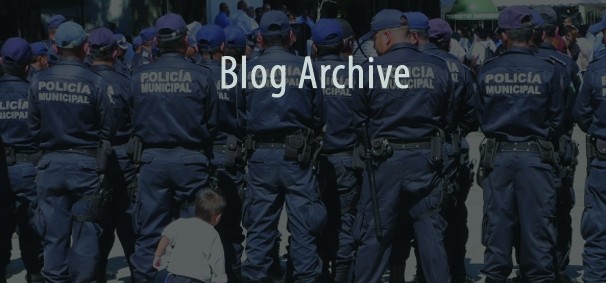The security situation in Côte d’Ivoire is a unique case that demonstrates the consequences of unsuccessful disarmament, demobilization and reintegration (DDR) and security sector reform (SSR) processes. Following election violence in 2010, Côte d’Ivoire has missed its latest opportunity to initiate a comprehensive reform program for its security forces. By the time the issue was belatedly acknowledged by the newly elected president, the leadership had already entrenched its position, which has resulted in a worsening security condition and the furthering of impunity. At this point, the security of Côte d’Ivoire is at a critical juncture. While chronic infighting and political instability suggest the need for a strong reform program, the reality on the ground makes the necessary changes hard to implement.
Political violence is not new to Côte d’Ivoire, which has experienced conflict during power transitions in the past. In 2000, electoral violence at the time of power-handover from General Robert Gueï to Laurent Gbagbo resulted in years of civil war. A similar cycle of violence ensued when Gbagbo refused to relinquish power to the 2010 election winner Alassane Oauttara. The consequence of which was an acrimonious division in the armed forces and wider Ivorian society. Since that time, the resentment has not dissipated but instead aggravated as the two sides continue to clash.
The current security circumstance in Côte d’Ivoire illustrates four critical points. First, the cross-border attacks in the porous Liberia-Côte d’Ivoire border region show how the circumstances in neighboring countries can have a detrimental effect on domestic security. For example, a recent UN leaked document accuses former Gbagbo supporters of recruiting mercenaries from Liberia to attack government establishments in Côte d’Ivoire. The availability of mercenaries is the direct result of an only partially successful DDR program in Liberia. The final UN evaluation report on Liberia’s DDR concludes that many Liberian ex-combatants were left out of the training programs after demobilization. The DDR program in Liberia demobilized around 101,496 soldiers, out of which 75,000 were placed in a donor funded rehabilitation program. Due to lack of funding, thousands of other ex-combatants have found their way to various mining regions to seek work, creating fertile grounds for recruitment.
Second, the Truth, Reconciliation and Dialogue Commission, which was initiated in the aftermath of the election violence, has to date been largely ineffective. While the commission is entrusted to conduct fair trials of those responsible for violence, many have charged that the commission has only targeted Gbagbo supporter’s, which in turn has only aggravated the situation. In addition, the commission has also suffered from a chronic lack of resources, all leading to serious challenges to its credibility.
Third, the UN-imposed arms embargoes on both Côte d’Ivoire and Liberia, which exempted government security forces, has also been largely ineffective. While the embargoes were imposed with the right intensions, arms continue to flow to both mercenaries in Liberia and to Gbagbo supporters in Côte d’Ivoire due to porous borders in both countries and the lack of effective monitoring and enforcement. Furthermore, other initiatives under the regional framework of ECOWAS and African Union, which address the proliferation of small arms and unregistered artisanal guns have been similarly unable to curb arms flows into both countries.
Finally, despite including a provision for a SSR program in the 2007 Ouagadougou Peace Agreement, Côte d’Ivoire has since failed to live up to its commitments. In the immediate aftermath of the 2010 election violence, SSR was deemed to be an indispensable ingredient to improve the peace and security condition in Côte d’Ivoire. However, as an ICG report demonstrates, even six months after Ouattara’s transition to power, the police, the army and the gendarmerie were still weakened by divisions between Oauttara and Gbagbo supporters with no SSR program on the horizon. In fact, Oauttara had little control over the army and depended mostly on his military faction, which later became the Republican Forces of Côte d’Ivoire. Local police and gendarmerie forces were further weakened as the army was given power to oversee arrests, interrogations and detentions of civilians believed to be connected to pro-Gbagbo militias. This has led to widespread human rights violations including arbitrary arrests, illegal detentions, extortion and torture by the Ivorian army as documented in a recent Human Rights report. Furthermore, the judiciary is impaired by a highly partisan approach, implicating only pro-Gbagbo supporters while turning a blind eye to the crimes committed by Oauttara supporters. This illustrates Côte d’Ivoire’s failure to learn from its past record of election violence, political hostility and ethnic tension while allowing the status quo to continue.
Thus, as it currently stands, the government of Côte d’Ivoire and its international and regional partners - including the International Criminal Court (ICC), African Union and European Union - have much to do to address the current malignant security condition. A comprehensive SSR program with a wider participation of non-state actors, an effective truth and reconciliation program, fair trials and capacity building for future elections all remain essential components of the reform process going forward. If these concerns are not addressed, Côte d’Ivoire’s political violence will likely continue and may even spill over into Liberia, who is also undergoing fragile post-conflict reconstructions.
Asif Farooq is a Research and Communications Intern at the Security Governance Group.
Tags: Cote D'Ivoire, DDR, electoral violence, SSR






 Visit the Centre for
Visit the Centre for